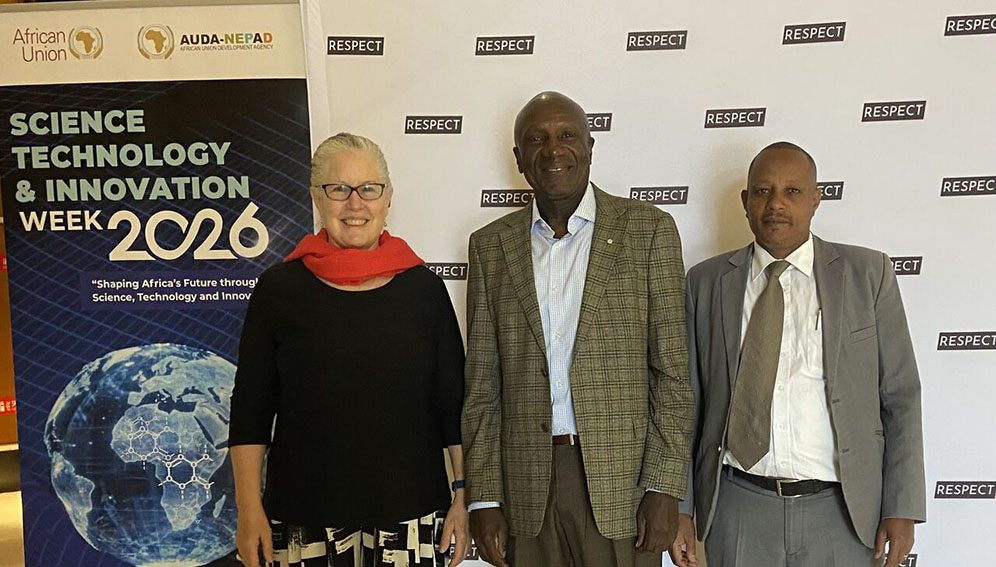SGCI News
[LAGOS] Five years after its launch, PENSA—a mobile app developed in Mozambique— has been accessed by more than four million people, emerging as the country’s premier digital health platform. The…
App created in Mozambique helps people in remote areas access health information
The mobile app is aiding disease prevention and control in Mozambique
But getting financial support for sustaining the app is a challenge
[LAGOS] Five years after its launch, PENSA—a mobile app developed in Mozambique— has been accessed by more than four million people, emerging as the country’s premier digital health platform.
The mobile application is enabling remote and underserved communities in the country to receive essential healthcare information and services, even using low-tech phones with limited functions, its developers say.
Valter Cumbi, PENSA’s project coordinator and founder of information technology company Source Code, said: “Since the launch of PENSA five years ago, it has already become the largest digital health platform in Mozambique, with over 60 million visits and appointments and four million users.”
Cumbi said the motivation for PENSA started during the 2014 to 2016 Ebola pandemic.
Our hope is that PENSA not only helps the communities prevent disease and lead healthier lives but also allows their concerns and opinions to be heard.
Valter Cumbi, PENSA (Plataforma Educativa de Informação sobre a Saúde)
“While we were inundated with information and preventive measures on TV, emails and websites, we realised that even within 30 minutes from the capital, the vast majority were completely unaware of Ebola and how it was affecting Africans,” Cumbi explained.
“We realised that conventional communication channels were not reaching this large demographic and sought to fix it through the creation of a more equitable platform.”
He said PENSA new features, content and functionality were continually being added to the app.
“This year, we added oral diseases, HIV self-test kits, public pharmacy locations, and we are in the process of adding a WhatsApp version,” Cumbi said.
“We will continue to innovate and extend our platform to different sectors and maybe even across borders.”
According to Mozambique’s Ministry of Health, the PENSA app was designed to help the most vulnerable groups in the country enjoy the best possible health at an affordable cost.
It provides information on everything from TB and malaria to maternal health and child vaccinations.
Many Mozambicans are vulnerable to diseases, especially those who live below the poverty line, in rural areas far from the nearest health facilities and with limited access to the internet.
“We saw that the project would have a socio-economic impact on the communities as it delivered services that the communities can use,” said Manecas Alferes, monitoring, evaluation and learning specialist with the National Research Fund in Mozambique.
PENSA was funded by the National Research Fund in Mozambique through the Swedish International Development Cooperation Agency.
According to Alferes, the fund supported the establishment of the platform after a competitive process leading to the selection of Source Code to build and manage the app.
“The National Research Fund showed [the concept] to policymakers, ensuring that it is possible to make a linkage between public and private sector industries to produce good results that can impact society,” Alferes said.
While celebrating PENSA’s achievements, Cumbi, PENSA’s founder, says securing the long-term sustainability of the platform remains a significant concern. PENSA provides its services free of charge to end-users, making financial sustainability a critical consideration.
“Our biggest challenge is getting support for long-term sustainability as we deliver our services free to the end user,” he added.
“This is particularly frustrating given the gaps we have identified and can fill with the new project and innovation ideas we have.”
Cumbi says that the platform is now a source of data collection and performs surveys for health partners and institutions on topics such as vaccination acceptance.
“Our hope is that PENSA not only helps the communities prevent disease and lead healthier lives but also allows their concerns and opinions to be heard by the health institutions to deliver a public health system that is aligned with their needs and reality,” he added.
This work was carried out with the aid of a grant from the International Development Research Centre, Ottawa, Canada. The views expressed herein do not necessarily represent those of IDRC or its Board of Governors.
Related News
Building Africa’s science future: inside the SGCI alliance
As Phase 3 of the Science Granting Councils Initiative launches on the margins of the African Union Summit in Addis Ababa last week, the SGCI Alliance Chair explains why this moment marks a decisive turning point for African science. Cephas Adjei Mensah describes what is…
Open call: Support for science granting councils in Sub-Saharan Africa
The International Development Research Centre (IDRC), through the Science Granting Councils Initiative (SGCI), has launched a call for proposals to support science granting councils in Sub-Saharan Africa in the establishment and operationalisation of the Capacity Strengthening Hub under Phase III of the SGCI-3. The Hub…
SGCI phase 3: USD 42M boost for Africa’s STI agenda
It was an exhilarating moment as the Science Granting Councils Initiative (SGCI) Phase 3 funding announcement was officially made yesterday during the Science, Technology, and Innovation (STI) Week 2026, held in Addis Ababa, Ethiopia. The STI Week, organised by AUDA-NEPAD and the African Union and…
SGCI funded projects
Rwanda’s integrated approach to sustainable agriculture and nutrition
Project Titles & Institution Areas of Research Number of Projects being funded Project Duration Grant Amount In-Kind Distribution Council Collaboration with other councils





